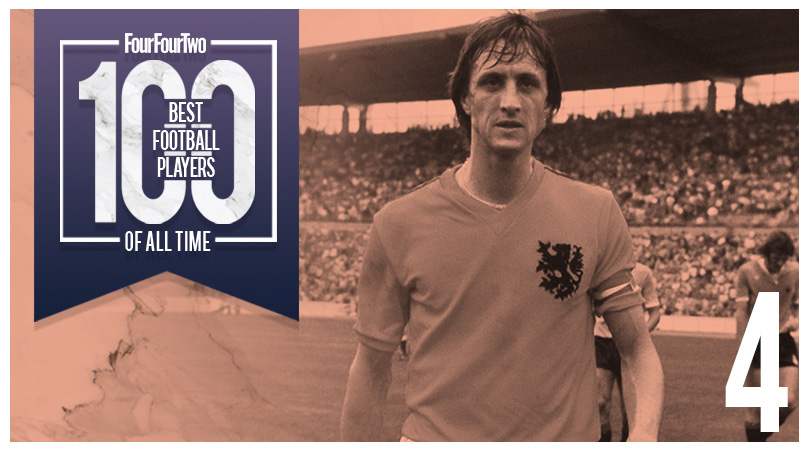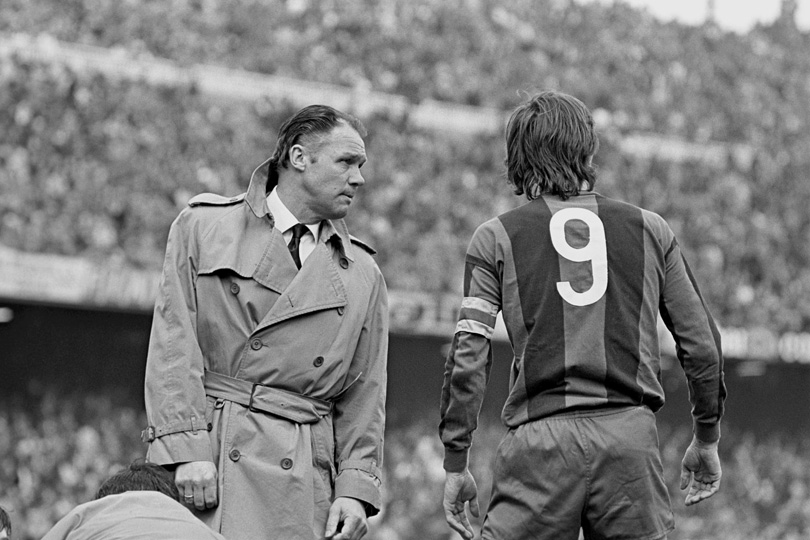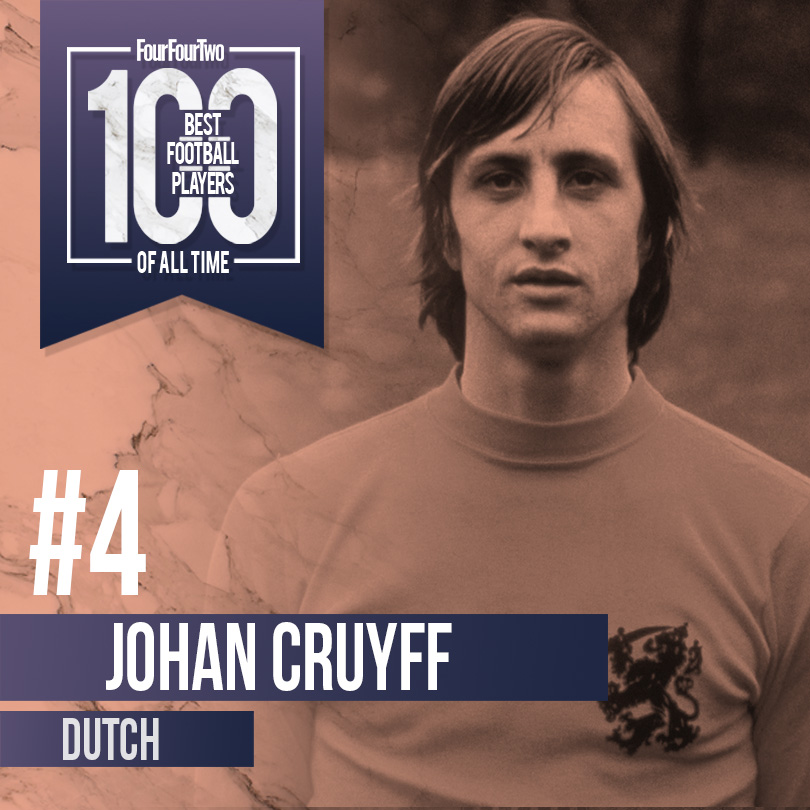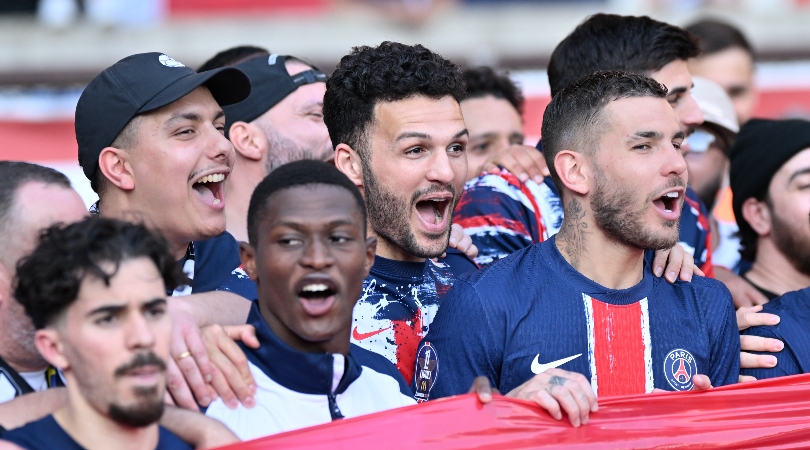FourFourTwo's 100 Greatest Footballers EVER: No.4, Johan Cruyff
As influential with his ideas as he was with his feet, the impact of Cruyff’s genius echoes through the game today

Baseball’s loss was football’s gain. When Hendrik Johannes Cruyff first joined Ajax as a 10-year-old, he much preferred a bat in his hand to a ball at his feet. It took five years for his coach to persuade him that football was the way to go.
Cruyff began ordering people around as soon as he entered the Ajax dressing room, as a rake-thin 17-year-old
Growing up spitting distance from Ajax’s ground in Amsterdam East, Cruyff spent hours at the houses of English coaches Keith Spurgeon and Vic Buckingham, learning both the language and about football. A Calvinist convinced in his predestination to change football, Cruyff began ordering people around as soon as he entered the Ajax dressing room as a rake-thin 17-year-old.
He was usually right.
“Before I make a mistake,” he famously once said, “I do not make that mistake.”
Total Football invented
Two months after making his first-team debut, Cruyff met former PE teacher Rinus Michels. Together, the pair invented Total Football. Wingers and overlapping full-backs kept the pitch wide, defenders were encouraged to bring the ball out from the back (if a midfielder dropped to cover the space) and the centre-forward – usually Cruyff – could roam free as Michels’ on-field conductor.
It worked. Cruyff won 20 major honours – including three successive European Cups from 1971 to 1973 – before a player revolt had him banished to Barcelona. Not content with revolutionising one club, El Salvador (the saviour) did so again, winning the Catalans’ first Liga title for 14 years.
Get FourFourTwo Newsletter
The best features, fun and footballing quizzes, straight to your inbox every week.
Nobody could match his speed, vision or eye for goal.

Part of arguably the best team never to win the World Cup in 1974 – the Netherlands lost 2-1 to West Germany in the final, having gone 1-0 up without the hosts touching the ball – Cruyff may not have reached his peak with his national team, but that only adds to his allure.
He retired in 1978, aged 31, and refused to go that summer’s World Cup. The following year, however, he was back, having lost the vast majority of his fortune in a pig farm venture in Catalonia. Spells in America for the Los Angeles Aztecs and Washington Diplomats followed, as did a trophy-laden return to Ajax and even a season at their bitter rivals Feyenoord.
“Cruyff always seemed to be in control. He made things happen,” said Rudi van Dantzig, a long-time collaborator of the great ballet dancer Rudolf Nureyev, himself a close friend of Cruyff’s. “There was something very dramatic about him, like a Greek drama – life or death, almost, even when they played ordinary Dutch League games.”

Yet Cruyff’s legacy extends far beyond his playing days. Returning to Ajax and Barcelona as a coach, he revolutionised how modern football should be played, prioritising talent over size and setting in motion decades of football dominance which favoured artists over artisans.
“This is how you people have always done it,” he said. “But they were wrong.”
Johan Cruyff painted the chapel and Barcelona coaches since merely restore or improve it
When he arrived in the Camp Nou dugout in 1988, the club still persisted with the prueba de la muñeca, literally ‘the doll’s trial’ in which only the 15-year-old’s who would grow up to measure 1.80m (5ft 9in) would be kept on. By the end of his first season, Cruyff had abandoned that particular test.
Xavi, Andres Iniesta and Lionel Messi are all 5ft 7in tall.
“Johan Cruyff painted the chapel,” Pep Guardiola once said, “and Barcelona coaches since merely restore or improve it.”
That’s quite some legacy to have.
Career highlight
That turn, at the 1974 World Cup against Sweden. It remains football’s great conjuring trick and is also recipient Jan Olsson’s career highlight. “I loved everything about this moment and knew it would become famous,” the Swede later said. “I thought I was going to take the ball. I still cannot understand. Every day I think about football, I think about Johan Cruyff.”
- Johan Cruyff: The player, the coach, the legacy
- Cruyff's final months remembered, by his ghostwriter and dear friend
The list
100 to 91 • 90 to 81 • 80 to 71 • 70 to 61 • 60 to 51 • 50 to 41 • 40 to 31 • 30 to 21
20 • 19 • 18 • 17 • 16 • 15 • 14 • 13 • 12 • 11 • 10 • 9 • 8 • 7 • 6 • 5 • 4 • 3 • 2 • 1
Andrew Murray is a freelance journalist, who regularly contributes to both the FourFourTwo magazine and website. Formerly a senior staff writer at FFT and a fluent Spanish speaker, he has interviewed major names such as Virgil van Dijk, Mohamed Salah, Sergio Aguero and Xavi. He was also named PPA New Consumer Journalist of the Year 2015.
